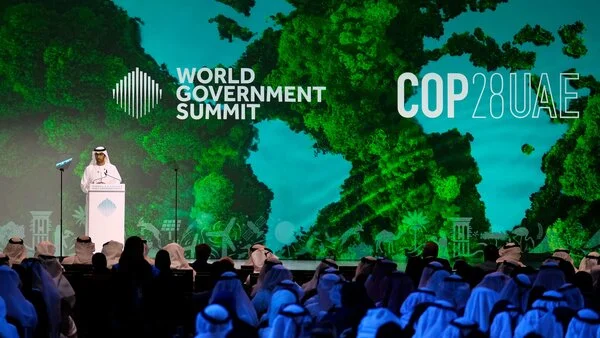Loss and Damage Fund Approved at COP28: All you need to know

The 28th annual meeting, known as COP28 (Conference of Parties to the UN Framework Convention on Climate Change), commenced in Dubai yesterday and is slated to run through December 12. The sprawling campus of Expo City, adorned with trees and foliage, serves as the backdrop for this critical gathering, expected to host over 70,000 delegates, climate negotiators, and participants committed to shaping a sustainable future for the planet.
COP28 Historic Decision: Approval of Loss and Damage Fund
In a significant milestone on the inaugural day of the United Nations’ Conference of the Parties (COP28) climate conference, the long-awaited deal on the “loss and damage” fund has been officially approved. This fund, sought by developing nations severely impacted by climate change-induced natural disasters, marks the first decision by countries to compensate such nations for climate-related impacts.
“We have delivered history today. It is the first time a decision has been delivered on Day 1 of any COP. This is evidence that we can deliver. COP28 can and will deliver,” the UAE’s COP28 President Sultan Al Jaber told delegates, while saying that his country was committing $100 million to the fund.
Financial pledges to the fund include €250 million from the European Union, $40 million from the United Kingdom, $17 million from the United States, $10 million from Japan, and £20 million from other funding arrangements for loss and damage.
How much damage has been caused by industrialisation?
The onset of the Industrial Era in 1850 disrupted Earth’s natural mechanisms for producing and absorbing greenhouse gases. Presently, the US, the UK, and the EU collectively account for 50% of all emissions. When Russia, Canada, Japan, and Australia are included, this contribution rises to 65%, representing two-thirds of global emissions. In contrast, India is responsible for only 3% of historical emissions. Notably, China, the world’s largest emitter in the last 15 years, contributes to 30% of global emissions annually.
Greenhouse gases, including methane, nitrous oxide, water vapor, and primarily carbon dioxide (CO2), drive most of the global warming. Carbon particles, released in significant quantities, possess the ability to persist in Earth’s atmosphere seemingly indefinitely, lasting for a millennium or more and contributing to global warming.

How much loss and damage are the world facing?
Research indicates that over the past two decades, 55 vulnerable countries have experienced a staggering $525 billion in combined losses attributed to the climate crisis. Projections estimate that this figure is poised to escalate to $580 billion annually by 2030. The profound impacts of global warming have reshaped the world, with vulnerable communities bearing the brunt of these changes.
The Intergovernmental Panel on Climate Change (IPCC) underscores that as global warming persists, losses and damages will inevitably amplify. This burden will be disproportionately borne by developing nations, particularly impacting the socially and financially disadvantaged segments within these countries.
How big is the fund and how will it operate?
Initially, the World Bank will supervise the loss and damage fund, with contributions originating from affluent nations like the US, the UK, and the EU, alongside select developing countries. While the specifics of the fund’s scale or replenishment cycle remain undefined, the urgent requirement is for several trillion dollars.
Historically, developing nations were hesitant about entrusting the World Bank with fund management, perceiving it as a potential avenue for richer nations to exert greater financial control. However, they have now acquiesced to this arrangement.
Thursday’s events opened the conference procedurally, but the substantial work commences on Friday with a ‘climate action summit.’ UN Secretary-General and world leaders will present national statements, outlining their governments’ actions to combat the global climate crisis. The summit’s outcome will significantly influence the trajectory of international efforts to address climate change.

- Art
- Causes
- Best Offers
- Crafts
- Dance
- Drinks
- Film
- Fitness
- Food
- Игры
- Festival
- Gardening
- Health
- Главная
- Literature
- Music
- Networking
- Другое
- Party
- Religion
- Shopping
- Sports
- Theater
- Wellness



